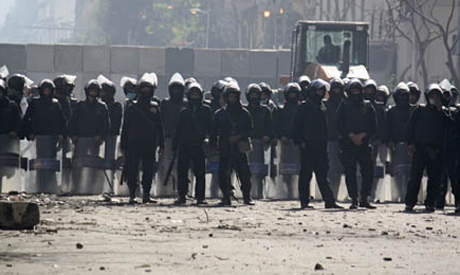by David Crane
Originally published through Jurist 20 Feb 2012
In 897 AD in what was called “the Cadaver Synod,” Pope Formosus was tried for various violations of Church laws. He was found guilty, his edicts were annulled, his robes were taken from him, and three fingers on his right hand were severed, before the former Pope was thrown in the Tiber River. Bizarrely, Pope Formosus had died of natural causes several months earlier. They prosecuted a dead man. Fast forward over a thousand years to 2012. Russia is about to put on trial a dead man, Sergei Magnitsky, a lawyer, who died in prison from the effects of his imprisonment and torture by the Russian government in November 2009.
Magnitsky’s death has caused universal condemnation by world leaders, international organizations, such as the EU, as well as human rights groups. His crime was exposing a massive tax fraud scheme by the Russian government and officials within the Medvedev/Putin regime in the amount of over $230 million dollars. Not content to leave Magnitsky in peace, the Russian government has hounded his family and harassed his mother, Natalia Magnitskaya. They are even going to bring charges in absentia against Magnitsky’s former employer, William Browder, a British citizen, of the Hermitage Capital Fund.
The Magnitsky case is indicative of Russian justice in the twenty-first century. Joseph Stalin did not prosecute the dead, yet the current government plans to move forward with the prosecution unless Magnitsky’s family ceases its efforts to seek justice for their family member, Sergei. “Even in Stalin’s time, the authorities did not prosecute people who were dead. The Interior Ministry is so desperate to justify its repression of Sergei Magnitsky that government officials are running roughshod over all legal precedent, practice and morality,” said an Hermitage Capital spokesperson.
Boris Kibis, the very investigator who found in 2010 no credibility to the Russian President’s Human Rights Council report that Magnitsky had been tortured and mistreated in violation of the European Human Rights Convention, is now completing the investigation against the long dead Magnitsky and intends to refer the case for prosecution this year. What those charges are remains to be seen.
It is important to note that the United States Senate has taken up the cause of the torture death of Sergei Magnitsky to sanction the officials who were responsible for his death. Led by Senators John McCain and Ben Cardin with 28 co-sponsors, the Sergei Magnitsky Rule of Law Accountability Act (S. 1039) is being considered this congressional term.
Sir Tony Brenton, United Kingdom Ambassador to Russia, 2004-2008, declared on the one year anniversary of the death of Sergei Magnitsky, November 2010: “The death of Sergei Magnitsky is an appalling indictment of some parts of the Russian judicial system. It is important for Russia, as it is for the wider world, that they clean this poison out.”
Prosecuting dead people has only happened a few other times in history. Such dead defendants included Joan of Arc, Thomas Beckett, John Wycliff, and Martin Borman. The Catholic Church banned the practice centuries ago. In modern jurisprudence prosecution of the dead is unheard of, particularly by civilized nations who respect the rule of law. We simply do not try the dead. This Russian example of justice brings shame to the rule of law and discredit upon its judicial system.
David Crane is a professor at Syracuse University College of Law and the founding former Chief Prosecutor of the international war crimes tribunal in West Africa called the Special Court for Sierra Leone, 2001-2005.



